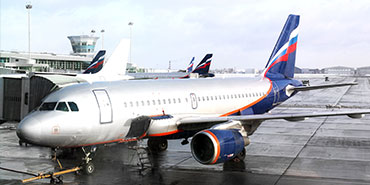
Reliability & Punctuality
- Home
- Reliability & Punctuality
24/7 ONLINE SUPPORT
Get immediate quotes & book shipment.



Reliability & Punctuality
Reliability and punctuality are critical aspects in various industries, including air speed, light security, and logistics. Ensuring reliability and punctuality in these sectors is essential for meeting customer expectations, optimizing operational efficiency, and maintaining a competitive edge. Here are key considerations in achieving reliability and punctuality: Timely Transportation: Scheduled Departures and Arrivals: Adhering to established schedules for transportation services, whether by air, ground, or sea. Real-Time Tracking: Utilizing tracking technologies to provide accurate and real-time information on the status and location of shipments. Operational Efficiency: Optimized Processes: Streamlining logistics processes to reduce delays and increase efficiency in handling goods. Effective Communication: Ensuring clear and timely communication between all stakeholders in the supply chain. Service Level Agreements (SLAs): Clearly Defined SLAs: Establishing and communicating service level agreements with customers, setting expectations for reliability and punctuality. Performance Monitoring: Regularly monitoring and evaluating performance against SLAs. Advanced Planning: Effective Planning: Anticipating potential challenges and planning for contingencies to minimize disruptions. Route Optimization: Optimizing transportation routes to reduce travel time and enhance punctuality. Capacity Management: Capacity Planning: Ensuring that transportation, warehousing, and distribution capacities align with demand to prevent bottlenecks. Scalability: Having the ability to scale operations during peak periods to handle increased volume. Communication and Transparency: Proactive Communication: Keeping customers informed about the status of their shipments and any potential delays. Transparency: Providing visibility into the entire supply chain process for all stakeholders. Technology Integration: Logistics Management Systems: Implementing advanced systems for real-time monitoring, tracking, and reporting. Automation: Utilizing automation to streamline repetitive tasks and reduce the likelihood of human errors. Training and Skill Development: Employee Training: Providing ongoing training to logistics and transportation personnel to enhance their skills and knowledge. Cross-Training: Cross-training employees to handle multiple roles, improving flexibility in managing operations. Quality Control: Quality Assurance: Implementing quality control measures to prevent errors and ensure the integrity of goods during transportation. Regular Audits: Conducting regular audits to assess and improve operational processes. Customer Feedback and Continuous Improvement: Feedback Mechanisms: Seeking customer feedback to identify areas for improvement. Continuous Improvement: Actively working on enhancing processes based on feedback and performance evaluations. Reliability and punctuality are not only vital for meeting customer expectations but also for building a positive reputation within the industry. Consistently delivering on promises and maintaining high standards of performance contribute to long-term success in the air speed, light security, and logistics sectors.WE COVERED
158+
International gateways
WE HANDLED
2000+
Tons of air freight annually

